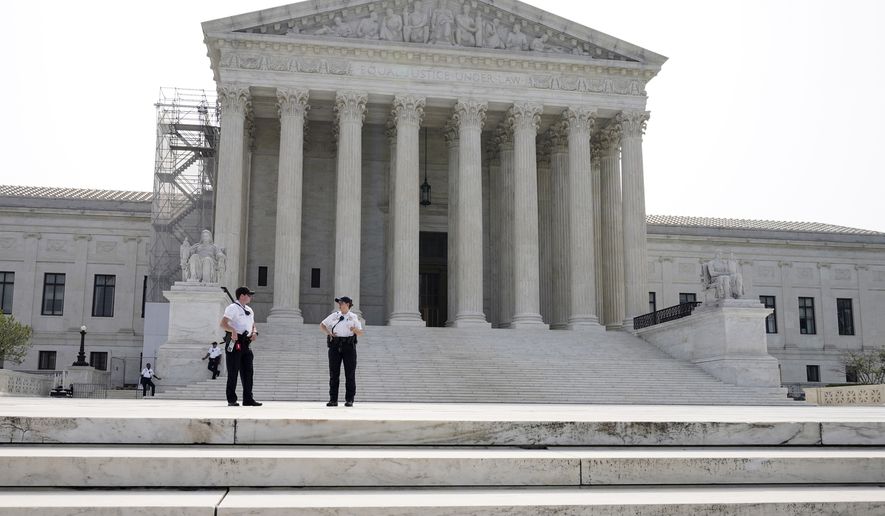The Supreme Court on Friday said it will hear a case involving whether the government can bar domestic violence perpetrators from owning a gun, setting up the next big test of gun rights for the justices.
The court, in a spate of last-minute orders, also agreed to hear several immigration-related cases, but refused to hear a case on transgender rights and the Americans with Disabilities Act.
In the gun rights case, the justices will be asked to decide how far to stretch their ruling from last year, which said only gun restrictions that would have been contemplated by the country’s founders can survive constitutional scrutiny.
A federal appeals court used that ruling to strike down a federal law blocking those subject to domestic violence protection from possessing a firearm, ruling it failed the history test because it wasn’t the type of prohibition the authors of the Second Amendment would have recognized.
The case before the justices is U.S. v. Rahimi. It will be heard when the court convenes for its next term, which begins in October.
Friday marked the last scheduled day of opinions for the current term. The court also released a series of cleanup orders accepting and denying cases for the next term.
Cases the court agreed to hear include one about what constitutes a “hardship” for an immigrant who is in the U.S. illegally seeking leniency, and what sort of notice the immigrant needs to be given for deportation proceedings to be valid.
The court said it would not hear a series of criminal rights cases, prompting protests from Justice Sonia Sotomayor.
In one case, a man was convicted on some charges and acquitted on others, but the sentence given was based in part on the offenses for which the person was acquitted. Justice Sotomayor said that seemed to overturn the verdict of the jury.
She said she expects the issue to return to the high court at some point.
She also said she would have taken several police excessive use of force cases that the court refused to hear.
The court also declined to hear a transgender rights case.
The 4th U.S. Circuit Court of Appeals ruled that the ADA is outdated on the question of transgender individuals, given modern medical understanding.
Justice Samuel A. Alito Jr. and Justice Clarence Thomas said they would have heard the case and reviewed the appeals court’s ruling.
“In short, the Fourth Circuit’s ruling leaves a great many people and institutions under the looming threat of liability, forcing them to change their behavior — behavior that may be deeply rooted in moral or religious principles — or face an unending stream of lawsuits. If it is at least possible that the ADA does not require these results, we should be willing to resolve the question now rather than later,” Justice Alito wrote.
• Stephen Dinan can be reached at sdinan@washingtontimes.com.




Please read our comment policy before commenting.